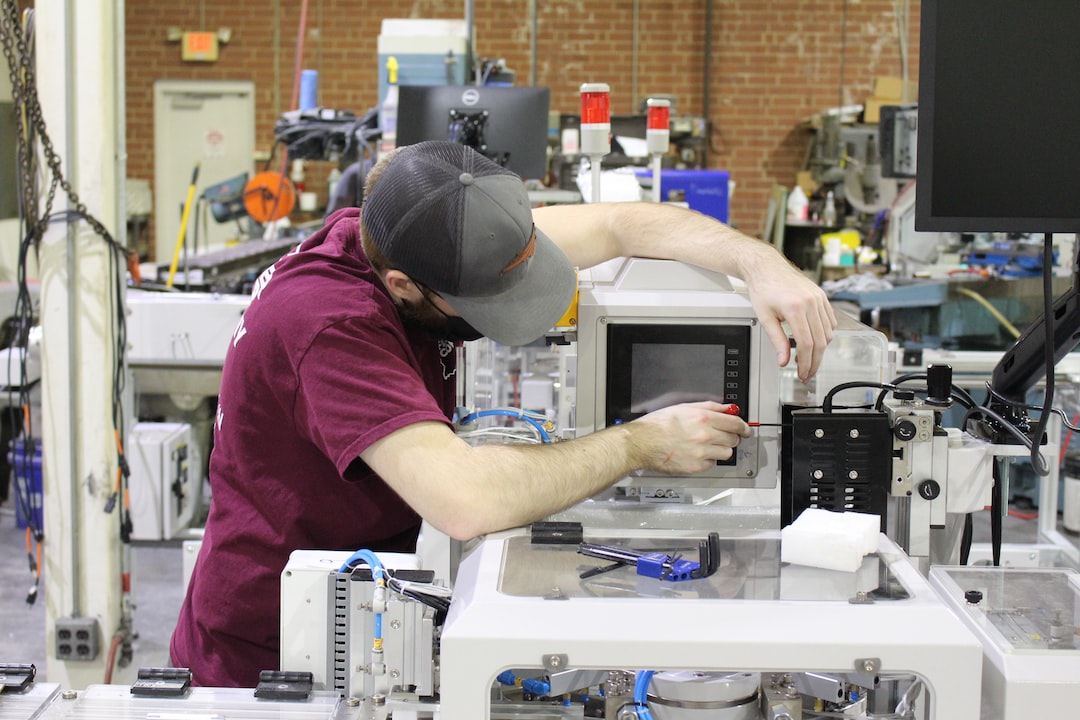The Role of Blockchain in Supply Chain Transparency for Manufacturers
Transparency has become an indispensable aspect of today’s global supply chains. Consumers are increasingly demanding information about the origin, authenticity, and sustainability of the products they purchase. In response, manufacturers are under mounting pressure to ensure transparency across their supply chains. This has given rise to the growing adoption of blockchain technology as a solution to enhance supply chain transparency. In this article, we will explore the role of blockchain in achieving supply chain transparency for manufacturers.
Supply chain transparency refers to the ability to track and trace products throughout the entire supply chain, from raw material sourcing to the end consumer. It involves providing real-time visibility into various stages of the supply chain, including manufacturing, transportation, distribution, and retail. Traditionally, achieving transparency has been challenging due to the complexity of supply chains, involving multiple stakeholders, geographical distances, and intricate processes. Thankfully, blockchain technology offers a promising solution by providing a decentralized and immutable ledger that can validate and record every transaction.
Blockchain technology operates on the principle of distributed ledger, where data is stored across multiple devices or nodes rather than a single central authority. It ensures that all participants in the supply chain have access to the same information, eliminating the need for intermediaries and reducing the risk of manipulation or fraud. Each transaction recorded on the blockchain is time-stamped and encrypted, making it virtually impossible to alter or delete. This inherent immutability makes blockchain an ideal tool for enhancing supply chain transparency and accountability.
One key benefit of blockchain technology is its ability to provide a tamper-proof record of every transaction in the supply chain. For manufacturers, this means that they can track the journey of their products from the source of raw materials to the final point of sale. They can ensure that the materials used in their products are ethically sourced, the manufacturing processes are compliant with regulations and standards, and the transportation and storage conditions are optimal. By maintaining an auditable record on the blockchain, manufacturers can provide transparent proof of their commitment to sustainability, social responsibility, and quality control.
Blockchain technology also enables manufacturers to collaborate more effectively with their suppliers and customers. By sharing real-time data on the blockchain, manufacturers can gain better visibility into their supplier’s inventory levels, production capacity, and delivery schedules. This enables them to optimize their production processes, reduce lead times, and ensure timely delivery of products to their customers. Such collaboration fosters trust and strengthens the relationships between manufacturers and their supply chain partners, enhancing overall supply chain transparency and efficiency.
In addition to supply chain transparency, blockchain also offers the potential for automated and decentralized verification of certifications and compliance. Certifications, such as organic, fair trade, or ISO standards, can be registered on the blockchain, allowing manufacturers to easily verify the authenticity of these certifications. This eliminates the need for costly and time-consuming manual verification processes, reducing administrative overheads and increasing the trustworthiness of certified products. Consumers can also benefit from this transparency by having immediate access to verified information about the products they purchase.
Furthermore, blockchain technology can play a significant role in preventing counterfeiting and fraud in the supply chain. Counterfeit products not only harm manufacturers financially but also pose significant risks to consumers and brand reputation. By recording product information, such as serial numbers or unique identifiers, on the blockchain, manufacturers can create an immutable proof of authenticity. This allows consumers to verify the genuineness of the products they purchase, reducing the incidence of counterfeit goods in the market. Such anti-counterfeiting measures not only protect consumers but also safeguard the brand integrity of manufacturers.
While the adoption of blockchain technology in supply chain management is still in its early stages, the potential benefits it offers are undeniable. Manufacturers can embrace blockchain to ensure transparency, collaboration, and trust throughout their supply chains. By leveraging the decentralized and immutable nature of blockchain, manufacturers can enhance their brand reputation, mitigate supply chain risks, and meet the growing demands for transparency from consumers. As blockchain technology continues to evolve, we can expect to see more manufacturers leveraging its potential to create more transparent and efficient supply chains.

